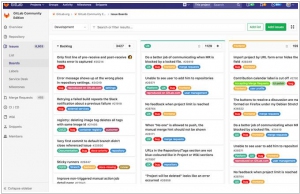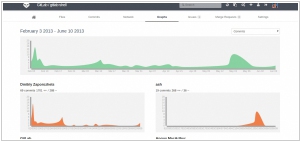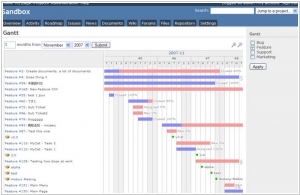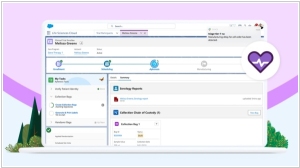Gitlab vs Redmine
May 19, 2023 | Author: Michael Stromann
14

GitLab offers git repository management, code reviews, issue tracking, activity feeds and wiki’s. Enterprises install GitLab on-premise and connect it with LDAP and Active Directory servers for secure authentication and authorization. A single GitLab server can handle more than 25,000 users but it is also possible to create a high availability setup with a multiple active servers.
GitLab and Redmine are both popular project management and issue tracking tools, but they have distinct features and focus areas. GitLab is primarily known as a web-based Git repository manager that provides a comprehensive DevOps platform. It offers features like version control, continuous integration/continuous deployment (CI/CD), code review, and issue tracking. GitLab emphasizes collaboration and automation, providing a seamless workflow for development teams. On the other hand, Redmine is a versatile project management tool that includes issue tracking capabilities. It offers features like issue tracking, project planning, time tracking, document management, and collaboration tools. Redmine provides a broader range of project management functionalities, making it suitable for teams with diverse needs.
See also: Top 10 Issue Trackers
See also: Top 10 Issue Trackers
Gitlab vs Redmine in our news:
2015. Collaboration platform for developers GitLab raises $4M

GitLab, the open source Git-based collaboration platform for developers, has announced that it successfully secured $4 million in Series A funding. The company provides a free community edition, a free SaaS version, and a paid enterprise edition of its service. With the newly acquired funding, GitLab aims to expedite its growth and expand its global operations. Git has become the go-to method for code management among numerous development teams. While GitHub stands as the most well-known Git-hosting service, there exist several competitors in this realm, each offering their own unique approach and user interface on top of the fundamental hosted Git concept. Atlassian, for instance, provides both free and paid Git hosting services. What sets GitLab apart from some of these competitors is its strong emphasis on its open source solution.
2014. Redmine 2.5 impoves custom fields
Redmine, a versatile web application for project management developed using the Ruby on Rails framework, has released its latest version - Redmine 2.5.0, which is now available for download. This update brings numerous enhancements to custom fields formats, including support for text formatting, HTTP links, and more precise selection options for user and version custom fields based on roles and version status. The custom field format API has undergone a complete rewrite, so if you have any plugins that interact with it (e.g., those adding non-standard field formats), it is necessary to update them before proceeding with the upgrade. Additionally, this version introduces experimental support for Markdown formatting, a widely used syntax for text formatting.



